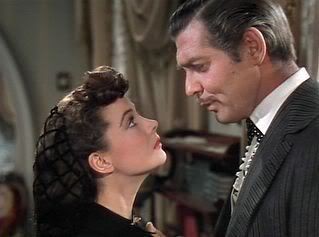
 It’s February and here we all are at the Round Robin Blog Hop to discuss GMC. You ask, what’s GMC? Well, it’s the backbone of all fiction writing from flash fiction to lengthy novels and includes all genres. Boil it down to easy to understand – What does the protagonist want? (Goal) Why does he or she want it? (Motivation) and What’s stopping him from attaining it? (Conflict.)
It’s February and here we all are at the Round Robin Blog Hop to discuss GMC. You ask, what’s GMC? Well, it’s the backbone of all fiction writing from flash fiction to lengthy novels and includes all genres. Boil it down to easy to understand – What does the protagonist want? (Goal) Why does he or she want it? (Motivation) and What’s stopping him from attaining it? (Conflict.)
XX
It's this last bit that makes the story a page turner. In my journey as an author, I learned this concept from several authors with successful writing careers. I also have an exellent book written by a friend and editor that spells the whole concept out for readers of all levels of experience. Check out Goal, Motivation & Conflict by Debra Dixon - it's an excellent reference for your writer's shelf.
XX
Consider this example: If Jackie wants and ice cream, because he loves ice cream and his grandfather gave him money to get some, that’s goal and motivation. If the truck just happens to have stopped out front of his house and he dashes to the street, tells the man what he wants, hands over the money, and walks away with his ice cream there is no conflict. Nothing to write about.
XX
But what if he wants an ice cream and the truck is there, but he has no money? Or what if he has the money and has been waiting for the truck to come, but for some reason, it never came that day?  Or what if he runs to the truck and trips and falls and the cash he’d been clutching in his hand rolled down the storm drain? NOW there is a story. What is Jackie going to do now?
Or what if he runs to the truck and trips and falls and the cash he’d been clutching in his hand rolled down the storm drain? NOW there is a story. What is Jackie going to do now?
XX
In that scenario, there is little Jackie can do to change some of the problems. He can’t crawl into the drain to retrieve his coins that disappeared into the water. And he can’t make the truck magically appear if it did, indeed, skip his street that day. But no money to start with might offer some solutions if he wants an ice cream bad enough. He could ask his dad if he’d give him the money. He might ask his mom if there is any chore she’d like done that he could do to earn the money. He could steal it out of his big sister’s purse. Or he could check the the floor around the driver’s seat in his grandfather’s truck because he knows his grandfather is always losing change out of his pocket. The choices he makes and the effort he expends to gain his goal is the story.
XX
 This is true of any genre. In a romance there are two protagonists who each have their personal goal and a reason for wanting it, and something in their way. But being a romance, this means the goals may be frustrated by the other character’s conflicting goal. He sees her and wants a date. But she’s been hurt and is reluctant to get involved with anyone. So, what is he going to do to change her mind and get her to say yes to a date? Maybe neither one of them is looking for someone to love. Both may have been hurt and built walls around their hearts. This is what is called the “inner” conflict. But there’s usually an outer conflict that is going to toss these two people together often enough, that they end up falling in love despite their initial reluctance. This outer conflict often includes opposing goals. Think of all the Hallmark movies you’ve ever seen. A common theme often includes one or the other trying to keep a family business going and the other one is trying to buy out the property for something that will kill the family business. That conflict is what needs to be resolved before they can have their happy ever after, and it’s what makes the story.
This is true of any genre. In a romance there are two protagonists who each have their personal goal and a reason for wanting it, and something in their way. But being a romance, this means the goals may be frustrated by the other character’s conflicting goal. He sees her and wants a date. But she’s been hurt and is reluctant to get involved with anyone. So, what is he going to do to change her mind and get her to say yes to a date? Maybe neither one of them is looking for someone to love. Both may have been hurt and built walls around their hearts. This is what is called the “inner” conflict. But there’s usually an outer conflict that is going to toss these two people together often enough, that they end up falling in love despite their initial reluctance. This outer conflict often includes opposing goals. Think of all the Hallmark movies you’ve ever seen. A common theme often includes one or the other trying to keep a family business going and the other one is trying to buy out the property for something that will kill the family business. That conflict is what needs to be resolved before they can have their happy ever after, and it’s what makes the story.
XX
 Consider a police procedural – the detective is called in to figure out who was responsible for the dead body. Goal – find the killer, Motivation – that’s their job, Conflict – there are dozens of possibilities as evidenced by the long running police procedurals on TV and in written fiction. No ID for the dead body? No fingerprints or DNA left behind by the killer. Traffic and security cameras catch just a glimpse of the perp, who happened to be aware enough to never show his face. The detective has a handy person of interest who happens to have a good reason to kill, and no alibi, but turns out to be innocent and now the trail has gone cold to the real killer. The conflicts are endless and in real life many murders never get solved.
Consider a police procedural – the detective is called in to figure out who was responsible for the dead body. Goal – find the killer, Motivation – that’s their job, Conflict – there are dozens of possibilities as evidenced by the long running police procedurals on TV and in written fiction. No ID for the dead body? No fingerprints or DNA left behind by the killer. Traffic and security cameras catch just a glimpse of the perp, who happened to be aware enough to never show his face. The detective has a handy person of interest who happens to have a good reason to kill, and no alibi, but turns out to be innocent and now the trail has gone cold to the real killer. The conflicts are endless and in real life many murders never get solved.
XX
I could go on with other genres, but I think you get the idea. If there is no conflict, there is no story. To keep your reader turning pages,  you need to keep them guessing, which means not giving away the resolution until the very last page. Some stories might be easy for a reader to guess how the main conflict might get resolved, so now the author needs to throw twists into the story – smaller conflicts that pop up to thwart the hero. Think of the Jack Reacher stories. We all know Reacher is going to win in the end and any fight he gets into he’s going to trounce the other guy, but along the way, he just seems to keep running into one conflict after another. He’s always minding his own business and his main goal is to just stay mobile and enjoy life and travel to different places. Yet he always seems to run into someone who’s struggling with something or a victim or someone caught up in an unfair fight. Being Reacher, his sense of fair play is his conflict. He can’t just ignore what he’s seen. He feels compelled to get involved and fix their problem, which now becomes his problem. If it’s a war story, there is always the enemy to defeat but that enemy is never as clueless as the characters on Hogan’s Heroes, and their plots, plans, and firepower become the conflict for our heroes. A spy story – pretty much the same. Pick a genre – ther’s always a conflict that needs to be overcome or resolved.
you need to keep them guessing, which means not giving away the resolution until the very last page. Some stories might be easy for a reader to guess how the main conflict might get resolved, so now the author needs to throw twists into the story – smaller conflicts that pop up to thwart the hero. Think of the Jack Reacher stories. We all know Reacher is going to win in the end and any fight he gets into he’s going to trounce the other guy, but along the way, he just seems to keep running into one conflict after another. He’s always minding his own business and his main goal is to just stay mobile and enjoy life and travel to different places. Yet he always seems to run into someone who’s struggling with something or a victim or someone caught up in an unfair fight. Being Reacher, his sense of fair play is his conflict. He can’t just ignore what he’s seen. He feels compelled to get involved and fix their problem, which now becomes his problem. If it’s a war story, there is always the enemy to defeat but that enemy is never as clueless as the characters on Hogan’s Heroes, and their plots, plans, and firepower become the conflict for our heroes. A spy story – pretty much the same. Pick a genre – ther’s always a conflict that needs to be overcome or resolved.
XX
 A story doesn’t always have to have a happy ending or a satisfying resolution. Consider Romeo and Juliette. Or Gone With the Wind. In the first neither party finds their happy ending, and both commit suicide rather than submit to their families' rivalries. In Gone With the Wind, Scarlett loves Ashley and wants him to return her love, but he’s in love with someone else. GWTW does not have the ending Scarlett wants and she even alienates Rhett who does love her. Who doesn’t remember his big line: “Frankly my dear, I don’t give a damn.” But, it’s those conflicts that make the stories memorable.
A story doesn’t always have to have a happy ending or a satisfying resolution. Consider Romeo and Juliette. Or Gone With the Wind. In the first neither party finds their happy ending, and both commit suicide rather than submit to their families' rivalries. In Gone With the Wind, Scarlett loves Ashley and wants him to return her love, but he’s in love with someone else. GWTW does not have the ending Scarlett wants and she even alienates Rhett who does love her. Who doesn’t remember his big line: “Frankly my dear, I don’t give a damn.” But, it’s those conflicts that make the stories memorable.
XX
 If this entire concept has never occurred to you before, consider your favorite book of all time and ask yourself: What did my favorite character want? Why did he want it? And Why couldn’t he have it? I’m sure you’ll be able to answer all three questions and it was in resolving that last question that the book entertained and became a favorite.
If this entire concept has never occurred to you before, consider your favorite book of all time and ask yourself: What did my favorite character want? Why did he want it? And Why couldn’t he have it? I’m sure you’ll be able to answer all three questions and it was in resolving that last question that the book entertained and became a favorite.
XX
Want another take on GMC – check out my fellow Round Robin Blog Hoppers”

Dr. Bob Rich
Anne Stenhouse
Victoria Chatham
Connie Vines
Helena Fairfax
Diane Bator